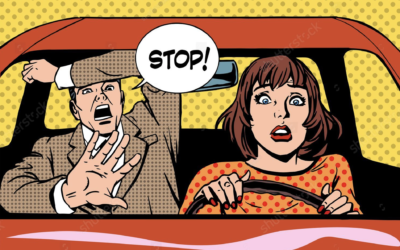If your car has been totaled as a result of a car accident, the insurance adjuster will offer you a lowball offer. A standard issued practice of an insurance company. The goal of every insurance carrier is to collect the most amount of money on premiums and payout the least on claims, valid or invalid.
The insurance company will attempt to reimburse the owner of the vehicle the value of your vehicle minus the deductible, and they will try to recoup whatever costs they can by selling your car for parts. This may be unfair to vehicle owners who are looking for a settlement amount that will allow them to purchase a new car. This article will discuss everything you need to know about how insurance companies determine total loss and how you can get the most money from insurance for your totaled car.
What is a total loss?
A vehicle can be considered a total loss when the cost of the repair exceeds its actual cash value. If the value of the repairs exceeds the cash value of the vehicle it’s not practical for the insurance to pay for the repairs so the insurance company.
Additionally, the insurance company may consider a vehicle a total loss even when the repair cost is less than the cash value of the vehicle.
An insurance company will determine whether to consider your car a total loss based on these factors:
Car accidents are a common occurrence in New York, and New York State law provides several protections for those injured in such incidents. Here’s what you need to know:
- Vehicle safety
- Cost of repairs
- Quality of repairs
- Vehicle value
A total is considered a total loss in New York when the cost of repair plus the salvage is at least 75% of the vehicle’s actual cash value.
Insurance companies will assess the pre-accident condition of the vehicle, the number of miles in the odometer reading, damages not caused by the accident, and the vehicle’s value based on the market conditions in the area where the policyholder lives in order to determine the actual cash value of the vehicle.
Research your vehicle’s value
The owner of a totaled vehicle should conduct an independent research about the vehicle’s valuation prior to accepting an offer from an insurance provider. The make, model, year of manufacture, condition, and features of your vehicle will affect its value. A simple way to assess the value of your vehicle is to consult websites like National Automobile Dealers Association guides, Kelley Blue Book, Consumer Reports Car Value Estimator.
Utilize third-party appraisals
A third-party adjuster may provide an unbiased assessment of your vehicle’s worth. An independent adjuster’s opinion prove that the insurance provider undervalued your vehicle’s worth.
Submit a counteroffer
Compare the offer you have received to the valuation you have found during your independent research and a third-party appraisal. If the offer and your research valuation are comparable then the offer from the insurance provider is reasonable.
However, if you have received a lowball offer, submit a reasonable counter to present to your insurer. Email the adjuster with all of the necessary documentation you have collected to establish the credibility of your offer.
Providing supporting documentation
Despite your efforts to independently value your vehicle, the insurance company may refuse to make a better offer.
In addition to printing out valuations from reputable websites as supplementary material, you can provide all relevant documents on your vehicle, including the sticker that lists all of the details of your car when it was purchased, accident reports, insurance policies, and maintenance records.
These documents establish the condition of your car before the accident and support your claim.
Utilize effective negotiation strategies
Negotiating with an insurance adjuster requires skill. Here are some negotiating tips to help you obtain the most value for your vehicle:
- Familiarize yourself with your car’s insurance policy: Review the policy to understand its terms and conditions, such as, coverage limits, exclusions, and all other relevant details. Review the section of the policy that addresses how much you’re entitled to in case of a total loss.
- Submit documents: keep records of all interactions with your insurer, including letters, emails, and phone call logs. Write down details of your discussions and any guarantees made by the insurer.
- Remain calm and be persistent: Negotiations won’t be completed overnight. It may take some hustle, including multiple phone calls, correspondence and meetings, remaining persistent may assist you in your efforts to get a proper offer.
- Declare your intentions: Declare your desired settlement amount, and provide reasonable justification to support it. Rely on evidence such as recent valuation reports, an independent appraisal report, the insurance policy, and receipts of aftermarket accessories.
- Speak with a manager: If you’re getting nowhere with the insurance company’s representative, request to speak with the line manager. They also have authority to make settlement decisions.
- Request a Third-Party Appraisal: An unaffiliated adjuster can give an independent opinion on the value of your vehicle. This can be used to establish that the insurance company has misappraised the total loss.
- Counteroffer: Compare the insurance provider’s offer given to you with the value ascertained from the third-party appraisal. If similar, the insurance provider’s offer is reasonable. However, if you feel the insurance provider’s offer is too low, decide on an appropriate counter to present to them. Email the insurance carrier all of the documents and necessary information you have compiled to establish the reasonableness of your offer
Maximize your insurance payout for a totaled car
If you feel that your totaled car has been incorrectly priced by the insurance company, it’s important to argue your case to secure the best reimbursement for your loss.
Request a copy of the report from the insurance carrier. Keep in mind that negotiating with your insurance provider for a better settlement.
If you’ve been injured in a car accident, working with a car accident attorney helps your chances of getting the fair and just compensation you deserve. Koenig Pierre is a New York car accident lawyer that has been securing maximum payouts for car accident victims. Even if you don’t think you have a case, contact Koenig Pierre, a New York car accident attorney for a free, no-obligation consultation. Koenig Pierre, a car accident attorney, operate on a contingency fee basis, meaning that you don’t pay a dime until we win your case.
Personalized Attention: Koenig provides personalized legal services. He will work closely with you to understand your situation and focus his approach to meet your needs.
A Successful Track Record: Koenig has a proven track record of securing favorable outcome for his clients. He will fight tirelessly to ensure you receive the compensation you deserve.
No Upfront Fees: You will not pay a dime nothing unless he wins. He operates on a contingency fee basis.
Contact Koenig Pierre today!
If you or a loved one has been injured on the job, in a car accident or slip and fall accident, don’t hesitate to seek legal assistance. Contact this New York Personal Injury Lawyer at (800) 946-4616. Serving all of New York, he is ready to help you win your case.
Apart from car accidents, Koenig Pierre will also handle personal injury cases that involve slip and fall injuries, medical malpractice, truck accidents, elder abuse, dog bites, construction accidents, bicycle accidents, wrongful death and other work-related injuries.
Koenig Pierre is committed to serving every client with personalized attention, compassionate customer service, and professionalism. Before you get carried away, call him today!
Blog
Should I Sue My Girlfriend After A Car Accident?
Yes! You should sue your girlfriend, boyfriend, friend, or family member after a car accident. In New York, suing a loved one after a car accident is not particularly adversarial and should not
How is Liability Determined in a New York Slip and Fall Case?
People can get badly hurt from a slip or fall especially from winter slip and fall accidents that occur over snow and ice. Injuries like fractured bones, spinal
10 Most Common Causes Of Car Accidents In NYC
As of July 2024, New York City roads have experienced had 7,371 motor vehicle collisions, according to NYC’s Motor Vehicle Collision Report. Approximately 4,000 drivers, passengers, cyclists, and pedestrians suffered injuries in these auto accidents. More than half...




